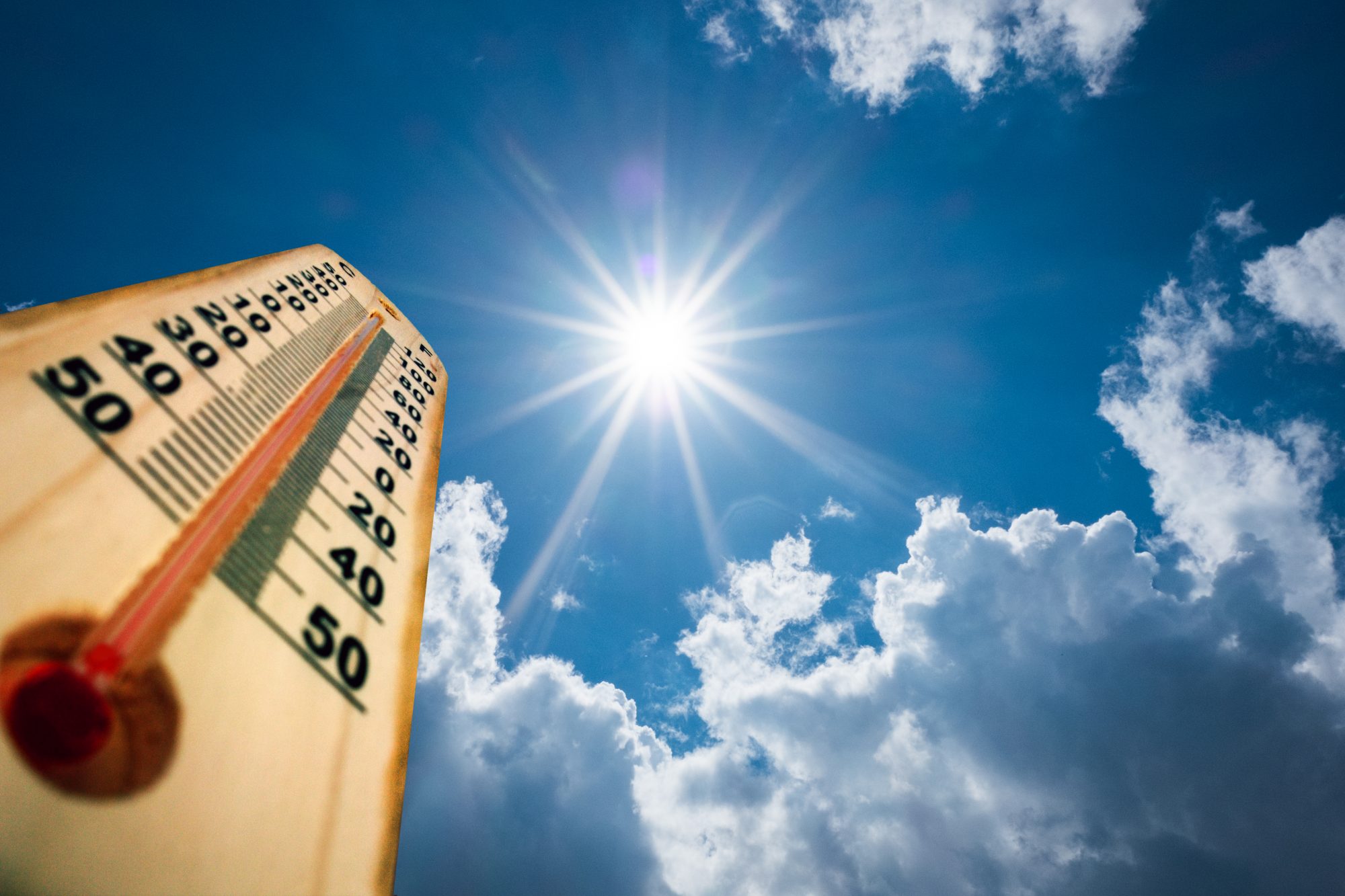
The weather will be extremely warm during the coming days. Drink regularly, even if you are not thirsty, and take it easy.
Protect your skin with clothing and sunscreen of factor 30 or above. Enjoy the sunshine, but avoid spending too long in direct sunlight, or find a place in the shade.

Cool down: have a cold (foot) bath or shower and occasionally place a cool towel in your neck.
This prevents dehydration and overheating of the body.
For young children and elderly people, it’s extra important to mind the heat.
Possible complaints brought on by overheating are headaches, dizziness and nausea.
How to identify heatstroke
- Heatstroke means that the body has become overheated and dehydrated.
- This may cause symptoms such as: headache, dizziness, vomiting, very hot skin, a lot of sweating, feeling weak.
- Allow the body to cool down, for example with a cold shower or by being in a cool space.
- Drink plenty of water and eat or drink something salty. Avoid alcohol.
- Sit down calmly.
- If there is no improvement, call your GP.
- Call 112 if someone is
-
- constantly vomiting
- or confused
- or has fainted and has not woken up after 2 minutes.
Sensible sunbathing and sunscreen
- Overexposure to the sun can cause the skin to burn.
- How quickly your skin burns depends on your skin type.
- Protect your skin from sunburn.
- Immediately get out of the sun if you notice you’re burning.
- Alleviate pain by cooling the skin with wet towels.
- Stay out of the sun for at least 3 days to allow your skin to recover.
How to prevent my child from dehydrating
- Dehydration is a shortage of water in the body.
- Children often dehydrate because of illness with fever, vomiting and diarrhea.
- Drinking is vital. Give your child little sips of water often to prevent dehydration.
- Give your child ORS to drink if they are displaying signs of dehydration. ORS is a solution of salts and glucose (fruit sugars) in water. It is used to compensate watery diarrhea and vomiting.
- Is your child not or barely peeing? Or are they drinking less than half of what they normally drink? Call your GP.
- Call your GP immediately if your child is drowsy or you can’t wake them.
![]() This news item is based on a post by Thuisarts.nl. The information is not intended to replace a consultation with a GP. For personal advice, please contact your GP. Please read our disclaimer.
This news item is based on a post by Thuisarts.nl. The information is not intended to replace a consultation with a GP. For personal advice, please contact your GP. Please read our disclaimer.
